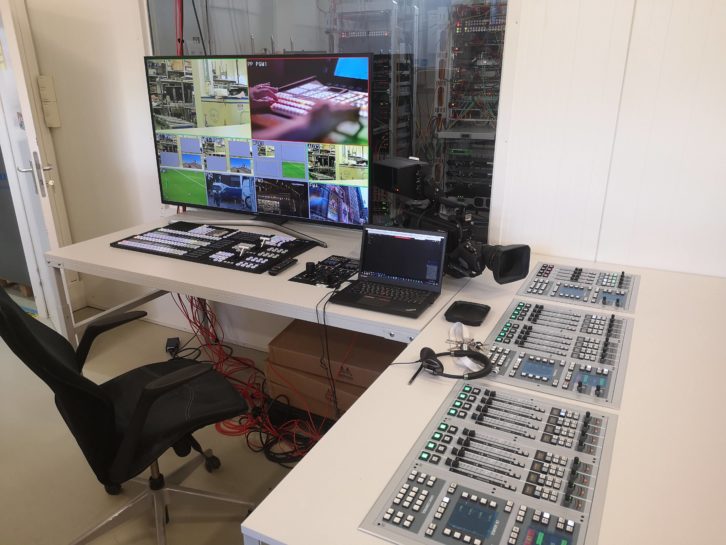
The participants of 5G-Virtuosa, the EU-funded project exploring 5G and virtualization in broadcast production, announced today that the first technical step of the initiative has been completed at Nevion’s Service Operations Center (SOC) in Gdansk, Poland. The step involves the integration of multiple products from various vendors, with most of the work done remotely because of the COVID-19 situation.
The purpose of the EU project VIRTUOSA is to explore “Scalable Software Defined Network Architectures for Cooperative Live Media Production exploiting Virtualized Production Resources and 5G Wireless Acquisition”. In practical terms, this means demonstrating through real-life examples how 5G can be combined with virtualization concepts to enable broadcasters to produce live content (such as sports or music coverage) more efficiently and cost-effectively across locations, to meet growing consumer demand.
The project participants are: Nevion AS (Norway), Mellanox Technologies LTD (Israel), LOGIC media solutions GmbH (Germany) and IRT – Institute for Broadcasting Technology (Germany).
The first phase of the project involves setting up an IP-based studio, built on industry standards  (SMPTE ST 2110 and NMOS) and integrating equipment from multiple vendors, including: video cameras, a vision mixer, and a server from Sony; a multiviewer from TAG Video Systems; an audio mixer from Stagetec; a media analyzer from Telestream; IP switches from Mellanox; a PTP-compliant time and frequency synchronization from Meinberg; software-defined media nodes from Nevion; and all of it managed by an orchestration and SDN control system from Nevion.
(SMPTE ST 2110 and NMOS) and integrating equipment from multiple vendors, including: video cameras, a vision mixer, and a server from Sony; a multiviewer from TAG Video Systems; an audio mixer from Stagetec; a media analyzer from Telestream; IP switches from Mellanox; a PTP-compliant time and frequency synchronization from Meinberg; software-defined media nodes from Nevion; and all of it managed by an orchestration and SDN control system from Nevion.
The set-up has now been transferred to IRT’s premises in Munich, Germany, where tests will be carried to ascertain the compliance of the complete set-up to industry standards.
Markus Berg, Head of Future Networks at IRT explains: “After a slight delay because of the COVID-19 situation, we are pleased that we are now in a position to start testing. The set-up is the fundamental building block that we will be using to create the 5G remote production planned for later phases of the project. The compliance to standards is a key part of the tests, and very important for IRT, as an internationally renowned research and innovation center for audiovisual technologies.”










